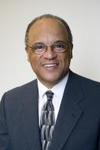A Journey of Transformation
“Striving for transformation in a personal sense requires unflinching honesty about our own thinking, and a willingness to change our mind.” (Tara Swart)
Human transformation and growth are common themes in the Gospels. New Testament conversion narratives tell of people who changed their lives as a result of encountering Jesus or the message of the gospel. Many are familiar with Apostle Paul’s famous statement in Romans 12:2 (KJV) : “And be not conformed to this world: but be ye transformed by the renewing of your mind, that ye may prove what is that good, and acceptable, and perfect, will of God.” Stories such as the one of Paul’s life and conversion give us hints as to how and why a person may change. However, there can be a tension between, on the one hand, our trusting our subjective interpretation of the meaning of our experiences and, on the other hand, our understanding of God’s will for our lives. There is also the risk of assuming that undergoing change is a passive event, as if we are merely acted upon by God.
Change is a constant, inevitable, life-long process and path. Change can be dramatic, and difficult for us to undergo. Or it can be subtle, and difficult for us to detect. Patterns of thinking and acting may be reinforced, causing us to think that we have remained the same. To register and understand our transformation, we may need to explore the relationship between body and mind, between acting, feeling, and thinking. Accordingly, contemporary preaching and religious teaching often portray healing and prosperity as attributes of a person living a changed and faithful life.
In this course we will, in a confidential setting, reflect theologically, think personally, and listen to one another deeply by using our own experiences, as well as short stories and theories, on why and how we may or may not change, and how that influences and contributes to our sense of being spiritual persons, and how we act in the world. We will review the tools that increase our awareness of change and transformation and consider how to use these tools to enrich our understanding of our own lives and our faith. Here are some of the questions that will guide our inquiry:
What is meant by “transformation”?
What is the relationship between transformation and conversion?
How do we know that what we have experienced has changed us?
How has our understanding of faith and what it means to live a faithful life changed over the years?
How is our awareness of change affecting our religious faith and how we are living today?
Participants are encouraged to read in preparation for the course the ninth chapter of the Book of Acts (Saul’s conversion), and the following two attachments:
1.) Howard Thurman, Sound of the Genuine
2.) Tom Butler Bowdon, commentary on William James, The Variety of the Religious Experience
Frederick J. (Jerry) Streets served as Senior Pastor of the Mount Aery Baptist Church in Bridgeport, CT from 1975-1992, led the congregation in significant growth, building a new church edifice and developing many social outreach programs and ministries.
He served as the Yale University Chaplain and Senior Pastor of the Church of Christ in Yale from 1992-2007 where he established a model of multi-faith campus ministry. In honor of Yale’s tercentennial, Yale University Press published his (2005) Preaching in the New Millennium.
In 2008 Professor Streets was a Fulbright Scholar at the University of Pretoria in South Africa where he taught in the Department of Practical Theology and explored the intersection of religious, social welfare and medical institutional outreach services to those affected by, and infected with, HIV and AIDS. He returned to South Africa as a Fulbright Specialist in 2010 to assess the transition of the University of the Free State in Bloemfontein, South Africa in becoming a multicultural and ethnic institution since the fall of apartheid.
He is a member of the Connecticut Academy of Arts and Sciences. Dr. Streets has served as an adjunct Associate Professor of Pastoral Theology at Yale Divinity School since 1987. He is also an adjunct Professor at the Columbia University School of Social Work and in the Spirituality, Mind Body Institute in the Department of Clinical Psychology and Education, Teachers’ College, Columbia University.
A licensed clinical social worker, Professor Streets is the former Carl and Dorothy Bennett Professor in Pastoral Counseling at the Wurzweiler School of Social Work, Yeshiva University in New York City and former Visiting Professor in the Department of Social Work and Latino Community Practice at the University of Saint Joseph in West Hartford, CT.
He also served on the Board of the Fund for Theological Education and the Iranian Human Rights Documentation Center. He was a 2009-10 Fellow of the Connecticut Health Foundation.
He serves as the Senior Pastor of the historic Dixwell Avenue Congregational United Church of Christ in New Haven, CT. Some of his current larger involvements include membership on the Association of Theological School (ATS), The Commission on Accrediting. He is a member of the Harvard Program in Refugee Trauma through which he assists in the training of mental health professionals across disciplines, religions and cultures in providing mental health services to those throughout the world who have been traumatized by war and natural disasters.
A native of Chicago, he has been nurtured by the American Baptist Convention, Progressive National Baptist Convention and United Church of Christ denominations. He has published numerous articles and book chapters, and he is the recipient of many awards.
